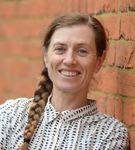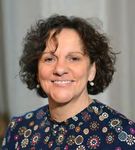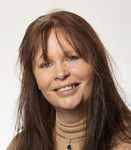Leaving No-one Behind - The role of the nursing profession in achieving the United Nations Sustainable Development Goals in the UK - Royal College ...
←
→
Page content transcription
If your browser does not render page correctly, please read the page content below
Leaving No-one Behind The role of the nursing profession in achieving the United Nations Sustainable Development Goals in the UK
LEAVING NO-ONE BEHIND Acknowledgements The Royal College of Nursing (RCN) would like to thank our members who contributed to this work: Marie Murray, Harriet Dean-Orange, Clare Nash, Yasmin Appleby, Hilda Campbell, Simon Newman, Samantha Dorney-Smith, Florence Cumberbatch, Dorcas Gwata, Ruth Bailey, Sarah Chitongo, Jessica Davidson and Nicky Lambert. We would also like to thank our other members and colleagues who shared examples of their work and the participants who attended the RCN’s Global Policy Summit on 9 December 2019 for their valuable insights and contributions. Report authored by Rosie Stainton, Policy Advisor. This document has been designed in collaboration with our members to ensure it meets most accessibility standards. However, if this does not fit your requirements, please contact corporate.communications@rcn.org.uk RCN Legal Disclaimer This publication contains information, advice and guidance to help members of the RCN. It is intended for use within the UK but readers are advised that practices may vary in each country and outside the UK. The information in this booklet has been compiled from professional sources, but its accuracy is not guaranteed. Whilst every effort has been made to ensure the RCN provides accurate and expert information and guidance, it is impossible to predict all the circumstances in which it may be used. Accordingly, the RCN shall not be liable to any person or entity with respect to any loss or damage caused or alleged to be caused directly or indirectly by what is contained in or left out of this website information and guidance. Published by the Royal College of Nursing, 20 Cavendish Square, London W1G 0RN © 2021 Royal College of Nursing. All rights reserved. No part of this publication may be reproduced, stored in a retrieval system, or transmitted in any form or by any means electronic, mechanical, photocopying, recording or otherwise, without prior permission of the Publishers. This publication may not be lent, resold, hired out or otherwise disposed of by ways of trade in any form of binding or cover other than that in which it is published, without the prior consent of the Publishers.
ROYAL COLLEGE OF NURSING
Contents
Foreword ................................................................................................................................................ 4
Executive summary ............................................................................................................................. 5
Recommendations............................................................................................................................... 6
Introduction........................................................................................................................................... 7
The power of nursing........................................................................................................................... 9
Progress towards the SDGs...............................................................................................................11
The social determinants of health...................................................................................................13
The impacts of the COVID-19 pandemic........................................................................................14
Conclusions...........................................................................................................................................15
Next steps for the RCN......................................................................................................................15
Findings: The role of the nursing profession in achieving the SDGs ......................................16
Case studies: Nursing profession contributions to the SDGs ..................................................17
A nurse-led outreach service to treat hepatitis C in a rural community.................................. 17
Helping staff to reduce waste and disposables, and encourage reuse and recycling.....18
Reducing sewage waste through better nursing procurement................................................... 19
Mobile hepatitis screening of street homeless people in London............................................. 20
Promoting mental health, wellbeing and resilience in Scotland................................................. 21
Blood borne viruses in prisoners and tackling prescribed medication misuse................... 22
Nurses tackling homelessness in hospital and community settings....................................... 23
Outreach work with vulnerable young people at risk of being exploited and
those involved in gangs................................................................................................................................... 24
Bringing an end to female genital mutilation (FGM)......................................................................... 26
Mortality and health inequalities among mothers and babies from Black,
Asian and ethnic minority groups............................................................................................................... 27
Nursing support for vulnerable people entering police custody – tackling gender
inequality and modern slavery..................................................................................................................... 28
Transforming nurse training – empowering students to think and act on wider
societal issues...................................................................................................................................................... 29
References ..........................................................................................................................................30
References 30LEAVING NO-ONE BEHIND Foreword Professor Dame Anne Marie Rafferty CBE FRCN, President of the RCN 2020 was a seismic year for nursing. As the first ever international Year of the Nurse and Midwife, we welcomed the long overdue global focus and attention this brought to our profession. But we have also been thrown in the spotlight in another completely unexpected way: in our role at the forefront of the response to the COVID-19 pandemic. Throughout the pandemic nursing and midwifery staff around the world have risen to unimaginable challenges and demonstrated skill, expertise, professionalism and extraordinary commitment to putting patients first in the most challenging of conditions. This crisis has affected us as individuals and professionals and is likely to change the way we work and live forever. Yet while the spotlight this pandemic has shone on our profession is not something we sought, it has provided an opportunity to demonstrate the breadth, depth, diversity and complexity of our work, and to articulate the significant contributions nurses and midwives are making to tackling some of the most difficult challenges and injustices facing our communities, including poverty, inequality and climate change. This will show what we are already doing to achieve better health outcomes for all, but also our potential role in achieving wider positive change in the communities we serve. The pandemic has highlighted far-reaching inequalities in the UK, especially in ethnic minorities and the intersectionality between different groups, and the vulnerability this causes. As we look to rebuild and recover, addressing health inequalities must be a core priority. Nursing has an essential role to play in prevention and enhancing universal health coverage (UHC) through access to quality and cost-effective health care. The Sustainable Development Goals (SDGs) are a global framework aimed at creating a better and more sustainable world for all. Now more than ever, they must guide our efforts to build back better from this crisis. Five years ago, all UN member states, including the UK, committed to achieving the SDGs by 2030 and to the principles underpinning the 2030 Agenda for Sustainable Development. Whilst there has been much progress, there are significant gaps in implementation and many communities continue to miss out. Health – and wider – inequalities are being exacerbated by the pandemic in the UK and across the world. Concerted and sustained action is needed by governments, stakeholders, and individuals – all of us, to achieve the SDGs – and their ambition to leave no-one behind – within the decade. This report highlights just some examples of how nurses and midwives are contributing to the SDGs in the UK. You will see the creative, imaginative and innovative ways nurses and midwives are leading the design and optimising of services for patients and populations. The SDGs are a powerful tool for us to advocate for our patients and communities, and a mechanism through which we can demonstrate our impact. We have a clear message: the SDGs provide a framework to guide all our efforts to tackle the challenges facing the UK population, and to build a more equitable, prosperous, and sustainable world. Nurses and midwives have an essential role to play in achieving UHC and the SDGs, to achieve the wider social change we need to see and need to be. 4 BACK TO CONTENTS
ROYAL COLLEGE OF NURSING
Executive summary
In 2015 all UN member states adopted the 2030 Agenda for Sustainable Development.
This includes the 17 Sustainable Development Goals (SDGs) which cover a broad range of
issues and aim to deliver transformative change for all people in all countries by 2030. If
applied together the SDGs address the broad range of factors that shape our health – the
social determinants of health.
In 2019, we set out to capture how nursing was currently contributing to the UK’s
implementation of the SDGs. We identified diverse areas where nurses and midwives
across the UK are working to address poverty, inequality, violence, and social exclusion
and deliver sustainable change. We also learned that whilst some individual nurses have
extensive knowledge of the SDGs, there is low awareness and understanding of the Goals
and their relevance for our work amongst our profession generally.
As the COVID-19 pandemic hit, our focus was on supporting members and the wider
profession. The nursing role at the forefront of the response to COVID-19 has thrust our
profession into the spotlight. As the UK considers how to rebuild and recover from this
crisis it is an important moment to highlight the breadth and diversity of nursing work
– beyond providing treatment and care in hospital settings – as powerful agents for
positive change.
The pandemic has been catastrophic for the UK, as a whole, but the impacts have been
unequal across the population. Ethnic minorities and deprived communities where health
was already poorer have been disproportionately affected, laying bare our population’s
poor and unequal health and extensive inequalities. The longer-term social and economic
impacts including unemployment, job insecurity, economic decline, disruption to
livelihoods, gaps in educational attainment, increased food insecurity and poverty will
exacerbate these.
The pandemic has underlined the urgency of addressing these issues. This context has
significant implications for how the SDGs are understood, including within our own work,
as a potentially powerful framework to ensure that the UK, and all countries, take the
right actions to create a more equal, prosperous, sustainable, and resilient world. The UK
government must accelerate efforts towards achieving the SDGs, not least to improve
resilience to future shocks. This must include strengthening the UK’s health systems,
addressing the social determinants of health and reducing inequalities. As demonstrated
throughout this report and the 12 case studies of nursing and midwifery work included
here, nursing and midwifery professions have a crucial role to play in achieving this.
It is also important that we build awareness and knowledge of the SDGs so we can use
them to advocate for and drive the changes we want to see: stronger health systems,
better health outcomes for all, greater equality and a strong, resilient nursing workforce
which plays a leading role in delivering and sustaining social change.
BACK TO CONTENTS 5LEAVING NO-ONE BEHIND Recommendations • The UK government should reaffirm its commitment and take necessary actions for achieving the SDGs by 2030. The SDGs should underpin post-COVID-19 planning and policy development, with investment in strengthening nursing and midwifery recognised as core to this. • The UK and devolved governments should prioritise resources towards delivering against the SDGs and addressing the social determinants of health, supported by robust strategies to improve population health and reduce health inequalities. • We call for the return of a Chief Nursing Officer (CNO) for England at the heart of the UK government’s Department of Health and Social Care, to drive informed and effective decision making across government. • All providers of pre- and post-registration nursing and midwifery education, learning and development, in all sectors, should ensure that the Sustainable Development Goals, the social determinants of health and health inequalities are integrated into learning models, content and curriculum. 6 BACK TO CONTENTS
ROYAL COLLEGE OF NURSING
Introduction
What are the SDGs?
In 2015, after a period of global consultation, discussion and negotiation in which the
UK played a key role,1, i UN member states unanimously adopted the 2030 Agenda for
Sustainable Development.ii This includes 17 Sustainable Development Goals (SDGs) and
169 targets to be achieved by all nations and stakeholders by 2030.iii
The SDGs aim to build a better and more sustainable future for all and cover a broad
range of issues. These include ending poverty and hunger, good health and education
for all, access to clean sustainable water and sanitation, clean energy, economic growth
and decent work, reducing inequality and ending violence, empowering women and girls,
combatting climate change, and making cities, oceans and forests more sustainable.
The SDGs are indivisible, meaning all countries must ensure progress across each of
the SDGs, and universal, meaning they apply equally to every country and everyone. The
2030 Agenda includes the commitment that no-one should be left behindiv and there is a
specific SDG on reducing inequality (SDG10).v
Goal 1 End poverty in all its forms everywhere.
Goal 2 End hunger, achieve food security and improved nutrition and promote
sustainable agriculture.
Goal 3 Ensure healthy lives and promote well-being for all at all ages.
Goal 4 Ensure inclusive and equitable quality education and promote lifelong
learning opportunities for all.
Goal 5 Achieve gender equality and empower all women and girls.
Goal 6 Ensure availability and sustainable management of water and sanitation for all.
Goal 7 Ensure access to affordable, reliable, sustainable and modern energy for all.
Goal 8 Promote sustained, inclusive and sustainable economic growth, full and
productive employment and decent work for all.
Goal 9 Build resilient infrastructure, promote inclusive and sustainable
industrialization and foster innovation.
Goal 10 Reduce inequality within and among countries.
Goal 11 Make cities and human settlements inclusive, safe, resilient and sustainable.
Goal 12 Ensure sustainable consumption and production patterns.
Goal 13 Take urgent action to combat climate change and its impacts.
Goal 14 Conserve and sustainably use the oceans, seas and marine sources for
sustainable development.
Goal 15 Protect, restore and promote sustainable use of terrestrial ecoystems,
sustainably manage forests, combat desertification, and halt and reverse land
degradation and halt biodiversity loss.
Goal 16 Promote peaceful and inclusive societies for sustainable development,
provide access to justice for all and build effective, accountable and inclusive
institutions at all levels.
Goal 17 Strengthen the means of implentation and revitalize the global partnership
for sustainable development.
1 The UK’s then Prime Minister David Cameron co-chaired the UN Secretary-General’s High-Level Panel of
eminent persons on the Post-2015 Development Agenda from July 2012
BACK TO CONTENTS 7LEAVING NO-ONE BEHIND SDG3 is to ‘Ensure healthy lives and promote well-being for all at all ages. However, taken together the SDGs can be viewed as an agenda for addressing the social determinants of health. These are the conditions in which people are born, grow, work, live and age and the factors and systems which shape people’s lives and opportunities for health and wellbeing.vi The SDGs are part of a historic global agreement to tackle the most significant challenges facing humanity and the planet. They are an important tool for holding governments and stakeholders to account for their commitments to achieving the Goals, and an important tool for lobbying policymakers to ensure that policies and actions are informed by the SDGs. 8 BACK TO CONTENTS
ROYAL COLLEGE OF NURSING
The power of nursing
Nurses and midwives account for nearly half the global health workforcevii and have
a vital role to play in driving global progress on the SDGs. There are many examples
of nursing work and innovation around the world that is driving progress on the
SDGs, including improving access to health care, addressing poverty, exclusion and
inequality, educating populations, improving nutrition, and supporting clean energy and
sustainability.viii
The All-Party Parliamentary Group (APPG) on Global Health in the UK has highlighted
that nursing has the ‘triple impact’ of improving health, promoting gender equality
and supporting economic growth. The APPG has highlighted examples of enormous
innovation and creativity in nursing from around the world which are crucial for countries
to ensure that all their citizens have access to health care. Examples include:
• nurse prescribers caring for HIV infected paediatric patients in Botswana
• village ‘wise women’ in central Asia, such as a nurse in Tajikistan who used the
knowledge and expertise from her nursing education to become a trusted family health
nurse in her village
• nurse-led clinics in Hong Kong where specialist nurses provide care and management
for diseases such as chronic obstructive pulmonary disease
• nurse specialists in the UK – such as a registered general nurse, sick children’s nurse
and school nurse who coordinated a school nursing service in England to develop and
implement a strategic policy for asthma management in 110 schools, adopting a public
health approach that resulted in healthier children and probably saved lives.ix
The need to strengthen and empower nursing to deliver the SDGs was highlighted by
the World Health Organization in its 2020 State of the World’s Nursing Report, which
emphasised the opportunities for advanced nursing education and enhanced professional
roles, including at the policy level, that can drive improvements in population health.x
However, despite their central role in achieving the SDGs there is still very limited
literature on the role and opportunities for nursing and midwifery in relation to the
SDGs.xi The nursing contribution and role is still too often underestimated and/or poorly
understood.
In the UK, nurses are the largest part of the health workforce.xii Together we comprise
around 700,000 individualsxiii and our work spans all communities and settings, across all
parts of the UK. We work with people of all ages, within and alongside a diverse range of
employers and organisations - making us important agents for driving change.
Our insight and connections into communities gives us an understanding of the various
underlying factors affecting people’s health and wellbeing. As professionals we are
trusted by our patients and communitiesxiv which helps us to access, understand and
support marginalised and underserved communities who are at risk of missing out on
efforts to achieve the SDGs. This trust is fostered through our repeated contact in homes,
schools and communities, and our sensitivity and professionalism when working with
underserved groups and at all stages of life.
BACK TO CONTENTS 9LEAVING NO-ONE BEHIND As well as delivering direct interventions, nursing has a crucial role to play in identifying and assessing needs and ensuring that the appropriate services are commissioned and delivered equitably, prioritising and meeting the needs of vulnerable people and groups. The most familiar and visible dimension of nursing work is our role in caring for and treating those who are unwell, and it is this aspect which has been especially prominent within the context of the COVID-19 pandemic. While this remains a core part of nursing work and always will, it is time for greater understanding of the complexity and diversity of nursing work and of our contribution towards preventing illness and promoting health and wellbeing as clinicians, advocates, activists, teachers, researchers, advisers and policymakers. 10 BACK TO CONTENTS
ROYAL COLLEGE OF NURSING
Progress towards the SDGs
Whilst progress has been made since the SDGs came into force, advances have been
uneven and inequalities within countries are rising.xv The impacts of the COVID-19
pandemic and the measures enacted by governments around the world to respond
will significantly impact global progress towards the SDGs.xvi As the world focuses
on recovery, the SDGs are the appropriate global framework for targeting action
and investment, and they will play an essential part in ensuring that recovery and
development plans focus on people, the planet and leave no-one behind.xvii
The UK government is now a third of the way towards the deadline for achieving the
SDGs. Given the scale of ambition of the SDGs, the added challenges from COVID-19,
and the growing impacts of climate change, achieving the Goals within this timeframe
will be a huge challenge. It is important now to take stock of the progress achieved
so far, reflect on learnings, and identify where further action is needed. This includes
empowering nurses and midwives with knowledge about the importance of the SDGs and
the contribution nursing can make.
When reviewing the UK’s progress towards the SDGs it is important to consider that
health policy is devolved across the four nations of the UK and the approach to the SDGs
in the UK respects the devolution settlements in Northern Ireland, Scotland and Wales.
This means that each nation is responsible for implementing its own policies in areas of
devolved competence, whilst responding to national and local needs.xviii
The 2030 Agenda for Sustainable Development includes mechanisms which encourage
member states to “conduct regular and inclusive reviews of progress at the national
and sub-national levels, which are country led and country driven”.xix In 2019, the UK
Government submitted its first Voluntary National Review outlining four years of
progress towards the SDGs.2 This publication highlighted the UK’s high quality health
service, education standards, increasing employment, progress on climate change and
strong equality legislation as achievements. It also acknowledged some areas requiring
action including climate and environmental issues, access to housing, mental health and
supporting a growing and ageing population.xx
However, the publication was criticised by the House of Commons International
Development Committee for being “selective and partial, relying on cherry-picked
data..., to present a ‘good story’.xxi Indeed, prior to the Review a network of organisations
had assessed the UK’s domestic performance against all 17 SDGs and their underlying
targets and highlighted that of 143 relevant targets, UK performance against 57% was
‘not adequate’ and for 15% was ‘poor’.xxii Their report also emphasised concern about
vulnerable places and people in UK society being left behind.
While the UK is progressing well in some areas, there are still many outstanding issues
and gaps. If we take SDG3 (Ensure healthy lives and promote wellbeing for all at all ages)
as an example: the existence of the National Health Service (NHS) means that the UK is
progressing well towards achieving universal health coverage - a key underlying target
of SDG3. However, the NHS has been reviewed as underperforming compared to other
similar countries in preventing deaths from diseases such as cancer and heart attacks,
having fewer doctors, nurses, and equipment than other countries and spending a below
average proportion of national income on health care.xxiii
2 This represents nearly a third of the timeline for the Goals.
BACK TO CONTENTS 11LEAVING NO-ONE BEHIND Furthermore, across key measures of population health progress has stalled, and in some cases it is declining.xxiv Worrying trends in healthy life expectancy and under-five mortality, rising rates of obesity and diet-related illness, alcohol and drug-related illness and death, rising rates of some sexually transmitted diseases, and non-communicable diseases are some examples. Across all population health measures there are persisting and, in some cases, widening health inequalities.xxv In February 2020, Sir Michael Marmot’s second review of health inequities in England highlighted extensive and widening health inequalities. It found that in the poorest and most deprived areas in England, health is poorer, preventable mortality rates are higher and life expectancy and healthy life expectancy is lower than in richer areas. Life expectancy is lower in the north and higher in the south of England: it is now lowest in the north east and highest in London.xxvi As well as inequalities in life expectancy, health outcomes, health status and the prevalence of diseases, there are also inequalities in access to quality services and people’s experience of health and care services.xxvii These inequalities relate to where people live, their level of deprivation, specific characteristics and to socially excluded groups. For example, evidence shows that people experiencing homelessness have high rates of physical and mental ill healthxxviii and die much younger: the mean age of death of homeless people was 45.9 years for males and 43.4 years for females in 2019; in the general population of England and Wales, the mean age at death was 76.1 years for men and 80.9 years for women.xxix Furthermore, the UK’s progress towards the goal of achieving healthy lives and wellbeing for all is being undermined by the workforce crisis facing health and care services across the UK, with demand far outstripping supply, and consistently high vacancy rates affecting all services and sectors.xxx Staffing shortages have a devastating impact on patient safety and outcomesxxxi and risk exacerbating inequalities, with parts of the population facing reduced or lack of access to quality services. Severe staff shortages before the pandemic hit affected the ability and capacity of the health and care system to cope and threaten to hinder our ability to recover and rebuild. 12 BACK TO CONTENTS
ROYAL COLLEGE OF NURSING
The social determinants of health
Health is determined by much broader factors than health care services. The range
of factors that influence and shape health and wellbeing are referred to as the ‘social
determinants of health’. For example, the socioeconomic status of an individual is
directly linked with their health: inadequate income can cause stress; lead to unsafe and
unhealthy living conditions; and result in greater exposure to risky behaviours, such as
smoking, substance abuse and unhealthy eating.xxxii Put simply, poverty is linked to poor
health. But despite being the world’s fifth largest economy, 4.7 million people in the UK
live in persistent povertyxxxiii and it has been estimated that child poverty could hit 40%
by 2021.xxxiv
Therefore, achieving SDG3 (Ensure healthy lives and promote wellbeing for all) in the UK
will require a holistic approach which addresses the social determinants of health.xxxv
This must include action to secure and sustain access to food, incomes and employment,
quality education, early childhood development and housing, addressing discrimination
and inequality, and promoting the safety and sustainability of the natural and built
environment. Progress is therefore needed across all of the SDGs to improve health and
wellbeing for all. These are issues which we see every day in our work and communities
and do our best to raise and address. But for us to strengthen our role in tackling these
complex issues will require mutual learning, innovation, cooperation and above all, strong
leadership.
BACK TO CONTENTS 13LEAVING NO-ONE BEHIND The impacts of the COVID-19 pandemic As stated in a recent UN report on progress towards the SDGs “What began as a health crisis has quickly become the worst human and economic crisis of our lifetimes”.xxxvi In the UK, the effects of the pandemic and the measures taken in response will have long lasting impacts on the population’s health and wellbeing; and on health and care staff and systems.xxxvii The pandemic has not affected all population groups equally. Age, ethnicity, sex, and geographical area have contributed towards the risk of infection, the severity of symptoms and higher death rates.xxxviii People from Black and South Asian ethnic backgrounds were shown to have increased risks of death involving COVID-19 compared with those of White ethnic background.xxxix Whilst in deprived areas of England and Wales deaths from COVID-19 were more than twice the rate of affluent areas.xl Increasing evidence also highlights the impact of factors such as poor housing and employment and increased vulnerability to infection and higher death rates.xli The pandemic has also impacted on mental health, with some groups and communities being more affected than others.xlii The long-term impacts of the pandemic will also likely include unemployment and job insecurity, economic decline, disruption to livelihoods, gaps in educational attainment, increased food insecurity and poverty. For example, it is estimated that the economic fallout of the pandemic could leave 1.1 million more people below the pre-COVID poverty line at year end, including a further 200,000 children.xliii Our members have also reported that they have seen an increased use of food banks during the COVID-19 pandemic. All of this will impact on health and wellbeing and increase demand for services. The SDGs span all these issues and are the appropriate framework to address these challenges and ensure that the UK – and all countries – are taking the right actions to create a more equal, prosperous, sustainable, and resilient world. Nursing has a central role to play in achieving this. 14 BACK TO CONTENTS
ROYAL COLLEGE OF NURSING
Conclusions
The examples in this report highlight the complexity, diversity and depth of nursing
and midwifery work, and our contribution to social change. They are evidence of the
changing and evolving nature of nursing, and of how nurses and midwives are pushing the
boundaries of what is traditionally viewed as nursing work.
Trust and the strong relationships that nursing has with our communities; and of
inclusion, and the ability of nursing to reach and support underserved and marginalised
groups, are key themes across the case studies in this report. This is, and will be, critical
for making significant progress towards the SDGs and achieving the ambition of leaving
no-one behind.
These examples help to showcase the power of nurses and midwives as advocates,
activists and educators, and the role of nursing in understanding and addressing the
range of issues which impact and shape health and wellbeing.
We recognise that the SDGs are a vital mechanism for promoting the essential role
of nursing and midwifery in achieving better health outcomes for all and wider social
progress. They are also a crucial framework for holding the UK Government and its
partners to account on their commitments to implement the SDGs and ensure genuine
progress that leaves no-one behind.
Next steps for the RCN
• We will continue to raise awareness amongst nursing and midwifery staff and students
about the SDGs, and encourage them to share their knowledge, insight, and reflections
to maximise progress. This will include continuing to gather and share examples of how
nursing work is contributing to the SDGs. Within this, we will continue demonstrating
how nursing and midwifery can be better utilised and empowered to lead in this area.
• We will advocate for nursing expertise to be at the centre of policy development and
health and care system design to ensure more equitable progress in population health
and wellbeing. This will include advocating for nursing and nursing issues to challenge,
engage and influence UK implementation of the SDGs and wider public policy.
BACK TO CONTENTS 15LEAVING NO-ONE BEHIND
Findings: The role of the nursing
profession in achieving the SDGs
This section summarises the findings from our work to capture how nurses and midwives
are contributing towards the UK’s progress towards the SDGs.
In 2019 the RCN undertook work to explore how nursing staff in the UK are contributing
to the UK’s progress towards the SDGs. This included a member survey to gather
examples of nursing practice and in-depth interviews with members to produce case
studies.
In December 2019 we hosted a global policy summit which brought together nursing
and midwifery leaders and representatives from different sectors and backgrounds
with relevant interest and expertise in this topic. We could not have foreseen, then, that
a global pandemic was just around the corner. This forced strategic conversations on
achieving SDGs to be put on hold whilst simultaneously creating a context in which the
SDGs have never been more important.
The case studies we gathered cover a number of important areas of nursing work; from
addressing female genital mutilation to knife crime and are illustrative of the central
role of the nursing profession in addressing inequalities. They do not, however, seek
to evidence the entire range of ways in which nursing contributes towards the SDGs.
We intend for these case studies to contextualise the Goals for nursing professionals,
and to encourage our profession and decision makers to understand and support the
contribution of nursing to achieving the SDGs.
There were some common themes across this small cohort of nurses and midwives that
we believe are replicated throughout the wider profession. These are:
• trust – and the strong relationships that nursing has with our communities. There is
also a consistent focus on inclusion, and the ability of nursing to reach and support
underserved and marginalised groups. This is one of the things that makes nursing so
unique, and so critical to ensuring progress towards the SDGs and the ambition that no-
one is left behind. As reflected by one interviewee:
“Nurses have a unique position…because of the trust that people have in us, they give
us an insight into their world, into their families, into their homes, they share things with
us that maybe they’ve never told anyone in their life before, and that information can be
used.” (Hilda Campbell)
• the nursing role in working within, alongside and leading multi-disciplinary teams
and engaging with diverse stakeholders and actors at a range of levels to achieve and
advance positive change
• the power of nurses and midwives as advocates, activists and educators, and the
diverse range of methods and tools we can use to understand and address diverse and
challenging issues. This includes communications work, awareness raising, research
and innovation, outreach, campaigning and community engagement
• the vital and unique role of nursing in identifying and addressing the wider
determinants of health – this relates to our role in achieving SDG3 but also the wider
SDG agenda. They highlight our critical role in raising awareness and educating the
public and influencing policymakers about these determinants and leading action to
address them.
16 BACK TO CONTENTSROYAL COLLEGE OF NURSING
Case studies: Nursing profession
contributions to the SDGs
Below are summarised versions of 12 case studies we collected through this work. These
have been selected because of the range of issues that they address, their geographical
spread across the UK and the diverse aspects of nursing work they demonstrate. Each
case study includes a short description of the work/project and highlights which SDGs it
links to.
A nurse-led outreach service to treat
hepatitis C in a rural community
Job role/title: Marie Murray, Clinical Nurse Specialist in
Infectious Diseases
Location: Dumfries and Galloway, Scotland
SDG3: Good health and wellbeing
SDG10: Reduce inequalities
Marie Murray leads a multi-disciplinary team delivering an outreach clinic for
injecting drug users who struggle to access care in a hospital setting. Her work
includes identifying people in need, with input from local drug and alcohol services.
Needle exchange workers then visit patients at home and provide them with clean
needles and injection paraphernalia. They also retrieve used needles for safe
disposal, with the aim of preventing further infection and transmission of blood
borne viruses. The team also runs drop-in clinics at the hospital two days a week and
a weekly clinic to assist patients with methadone prescriptions and outreach visits to
patients.
Marie’s team works in an integrated and flexible way to take account of patients’
social problems, lifestyles and other health problems. Working with social workers
and other health professionals including a specialist drug and alcohol nurse is
essential to addressing these issues, as Marie describes:
“The service and type of care the patients need has to be very holistic. Not only
do you have to deal with treatment you often have to deal with social problems,
housing benefits, mental health issues and also the chaotic mess of patients, the
chaotic lifestyles of people who use drugs and we can be flexible in our clinic…”
The uptake of health services for this group was previously very low due to factors
including lack of transport, time, and homelessness. In response to these issues and
to increase the uptake and engagement, the team established the outreach service
to treat patients directly in the community. Marie uses the Scottish national database
for hepatitis C to identify all the patients that have been referred to the team and to
track and follow-up with those that have disengaged, particularly those still involved
in drug and alcohol services with the aim of re-engaging them in her service.
BACK TO CONTENTS 17LEAVING NO-ONE BEHIND
Helping staff to reduce waste and
disposables, and encourage reuse
and recycling
Name/Job role/title: Harriet Dean-Orange, Senior Staff
Nurse in an operating department
Location: Brighton
SDG12: Responsible consumption and production
SDG13: Climate action
Health care providers generate large volumes of waste, including excessive water
and physical waste such as single-use plastics and other disposable items which
end up being incinerated, in landfill or sewage. Harriet has been working to reduce
the waste of her own organisation and to encourage reuse and recycling. This has
involved raising awareness about hand hygiene guidelines to encourage staff to
rethink glove use and consider washing or decontaminating their hands before
and after contact with a patient as an alternative. Adopting the use of alcohol
preparations and reducing the time for surgical scrubs can significantly reduce
water consumption and has in turn had other positive impacts, Harriet describes:
“a lot less electricity being used to warm the water and a lot less water being
used…. it’s also better for people’s hands. We found an improvement in the
amount of people that we have sent to occupational health due to dry dermatitis
from glove use.”
Harriet’s work also included presenting to the Chief Executive and the Board of
Directors about the importance of waste reduction, following which the Board
approved an external company to prepare a sustainable management plan with the
ability to audit and measure improvement across departments. It also set a Trust-
wide ambition to reduce waste and carbon emissions.
18 BACK TO CONTENTSROYAL COLLEGE OF NURSING
Reducing sewage waste through
better nursing procurement
Job role/title: Clare Nash, Senior Nurse for Clinical
Procurement
Location: Wolverhampton and North Midlands
SDG6: Clean water and sanitation
SDG12: Responsible consumption and production
Clare is working to reduce her organisation’s waste by implementing sustainable
procurement policies. She recognises the importance of involving nurses and other
staff in developing the specifications for products and has worked to ensure that
environmental sustainability is considered within procurement.
Clare’s approach considers the impact on other departments such as Estates which
must manage the disposal of increasing volumes of waste. She has also compiled
evidence highlighting the extent of the problem of macerator blockages and the
economic impact of excessive use of pulp products, specifically the cost of repairs.
This has helped her to demonstrate the impact on Estates and the environment, and
that savings made in one department can have wider benefits.
“We’ve all got our budgets, we have to prove that we’ve saved, but there’s a real
conflict between what procurement have got to save and the life of that product
… We might say, it’s cheaper to use single use plastic than buy some metal gadget
that we’ve got to clean … But nobody looks at the overall lifetime cost… [and the
knock-on effects].
BACK TO CONTENTS 19LEAVING NO-ONE BEHIND
Mobile hepatitis screening of street
homeless people in London
Job role/title: Yasmin Appleby, Clinical Nurse Specialist
Hepatitis C and B
Location: London
SDG3: Good health and well-being
SDG10: Reduce inequalities
Yasmin and her team deliver a mobile hepatitis screening service to homeless people
in London which is essential to ensuring that vulnerable homeless people have
access to health care services and health education to address hidden infectious
diseases. Most clients are rough sleepers and/or those with no recourse to public
funds, including undocumented migrants and asylum seekers.
The unit strategically tours London, screening and treating cases. The full circuit
takes around six months and is then repeated so that each location is visited at least
twice yearly. The service is equipped to detect symptomless people who would not
otherwise attend a screening service. It offers health checks, screening for TB or
hepatitis C and health education to address issues related to intravenous drug use. It
is open access - the person provides a name and date of birth and it is accepted that
these may not be genuine, it is open 24-hours and operates alongside facilities for
homeless people such as soup kitchens.
“A lot of the things that I do are way outside my job description … To fulfil my job
properly I can’t just look at the pathogen in somebody; … [I need to understand]
what made [them] vulnerable in first place.”
The service also provides ‘Point of care’ testing kits to people to take to their peers
who would be unlikely to attend the service, thereby enabling patients to do outreach
work within their networks:
“It is like almost having a health advocate to take back to the group …. I’ve got [a
Hep C positive] woman, [who] thinks [those she’s sharing needles] with are Hep C
positive too. They won’t attend screening... she’s got good relationship with them
and they trust her, but they just won’t access any service.”
Treatment for hepatitis C requires sustained intake of drugs over a period of between
8-12 weeks, which can be a challenge for rough sleepers. The service takes an
innovative approach by giving users a phone with unlimited data to enable them to
film themselves taking the treatment and forward this to a centralised database
which records treatment adherence. This helps ensure the person completes their
treatment programme and provides them with 24-hour access to the team.
20 BACK TO CONTENTSROYAL COLLEGE OF NURSING
Promoting mental health, wellbeing
and resilience in Scotland
Job role/title: Hilda Campbell, Mental Health Nurse and
Founder and CEO of COPE Scotland
Location: Scotland
SDG3: Good health and wellbeing
SDG10: Reduce inequalities
Hilda is a mental health nurse who founded and leads the charity COPE Scotland.
COPE works with people experiencing mental or emotional distress and who may
also face further challenges as a result of inequality and social exclusion. COPE
works with a range of stakeholders to deliver integrated care, training workshops
and shared learning to support individuals and address issues that can cause
distress.
Hilda’s experience as a nurse has had an important influence on her role at COPE:
“Nurses have the potential to connect with people in ways that many others
can’t… for me, the role of a nurse is to care, promote wellbeing, do no harm, and
do the best you can for the people in your care...In Scotland, community nurses,
for many years have been fighting poverty and inequality and doing their bit, and
maybe that’s the thing. Maybe more has to be done to celebrate the role that
nurses have to play in helping to find some of the solutions that the planet faces
today.”
COPE’s holistic approach is underpinned by the perspective of people with
lived experience of mental health problems and inequalities. Hilda believes that
challenging silo working is key to understanding and recognising people’s needs and
offering effective interventions:
“People are unique individuals and each person’s needs must be assessed within
the context of their life and circumstances. Offering someone who is homeless
techniques to relax when they find themselves sleeping rough isn’t responding
to what that person needs to help them feel safe; [so it’s about] a new way of
connecting, communicating, and offering interventions.”
COPE offers a wide range of self-help tools and support for individuals in distress
and is currently developing an online resource focused on early intervention,
prevention and promotion of good mental health, and developing skills to be more
available to someone in distress, for example by giving mental health first aid.
BACK TO CONTENTS 21LEAVING NO-ONE BEHIND
Blood borne viruses in prisoners and
tackling prescribed medication
misuse
Job role/title: Simon Newman, Head of Prison Healthcare,
HMP Berwyn
Location: North Wales
SDG3: Good health and wellbeing
Simon and his team’s innovative work in one of the largest male prisons in England
and Wales covers mental health, primary care, clinical substance misuse and
psychosocial substance misuse. Their work includes addressing the disproportionally
high levels of blood borne viruses among prisoners combines screening, treatment,
and immunisation acting to prevent the spread of viruses once they are released
The Service also works with GPs in the community to inform them of what the
integrated prison health care service has done to optimise a prisoner’s medication,
ensuring there is continuity of care and:
“…there is an opportunity for us to break that cycle. Following our intervention and
support, the GP in the community can follow the work that we’ve done to ensure
appropriate medicines are re-prescribed when they go back to the community…”
The service works to address the illicit use of prescribed medication in the prison
and reduce drug-related deaths. Simon explains that most prisoners have been on
medication for a significant time without review, so every prisoner who arrives has
their medication reviewed by both the pharmacist and GP. There are many challenges
in this environment, including that prisoners can often be unwilling to undertake the
reviews and risk losing medication as medicines can be viewed as tradable ‘currency’
between those in custody. There is also often a lack of acceptance by prisoners of
what is deemed safe and appropriate medication following the reviews.
Gaining the support of operational prison staff concerning medication reviews,
particularly from prison officers, is vital to overcome these challenges. The Service
provides prison staff with training and information and ensures that the reviews are
conducted face-to-face to ensure transparency with patients about what medicine
optimisation is and its importance. Peer mentors have also been recruited and
trained to support fellow prisoners. The Service runs a monthly focus group with
interested prisoners who help to inform further service developments. There is also a
dedicated patient information help line, staffed by peers and supervised by staff.
The team sees the positive benefits of their work in optimising medications for
prisoners and the prison, reflecting positively for safety with comparator prisons:
“… men and their families are reporting back to us [and], for the first time in
years they are awake, alert and able to engage in work and education, whereas
previously they were on large amounts of medication and quite sedated for much
of the day.”
22 BACK TO CONTENTSROYAL COLLEGE OF NURSING
Nurses tackling homelessness in
hospital and community settings
Job role/title: Samantha Dorney-Smith, Nursing Fellow
working for Pathway (Healthcare for homeless people)
and Florence Cumberbatch, Sister and Clinical Nurse
Specialist, University College Hospital, Pathway Homeless
Team
Location: England, Northern Ireland and Scotland
SDG1: No poverty
SDG10: Reduced inequalities
Samantha and Florence work with Pathway, a national
charity providing health care and housing support
to homeless people to help them find and secure
accommodation. Samantha campaigns specifically for better
health care for people experiencing homelessness. She
has been working closely with 35 nurses across England,
Northern Ireland and Scotland and to define specialist
practice in this area. Florence is a Sister at University
College London Hospital and leads a Pathway team.
Pathway’s work aims to support homeless people and resolve their health problems
by targeting their housing situation. The charity also sets up homeless teams
within hospitals and campaigns on homelessness. The Pathway approach is to treat
housing itself as a health outcome, working closely with the NHS to focus on the
homeless person’s physical and mental health and aim to use hospital admission as a
window of opportunity to change outcomes and foster recovery.
In addition to clinical support on physical and mental health, Pathway nurses provide
a range of support including help with benefits claims, immigration advice, housing
applications, and signposting to legal advice to help prevent evictions. They also
provide subsistence support, for example, money for travel expenses to attend
appointments, befriending and advocacy. Nurses also assist with obtaining formal
documentation such as birth certificates to support registration with a GP, and
support to access health and other support services in the community. Samantha
explains:
“There’s something very different in our nursing … it’s about treating people
as equals; we accept that it is a partnership. We call people clients rather than
patients because … they have to be an active partner and … it’s got to be a long-
term thing to help people recover.”
Nurses are also there to deliver culture change and raise awareness about why
people become homeless. A key challenge is that many patients feel compelled to
BACK TO CONTENTS 23LEAVING NO-ONE BEHIND
self-discharge from hospital before their care is completed and support for housing
has been provided. Florence describes how she supports people:
“We sometimes ask the hospital if they can fund a bed nearby for [the person] and
they’ll most likely agree for a few days and that gives us an opportunity where we
can work with housing support and do referrals to housing services.”
Providing advocacy on behalf of patients is also an important part of the work,
for example nurses will provide health information to relevant services/agencies
to support a case for housing. There is also an opportunity for former patients to
work with the charity as Experts by Experience, which allows patients to use their
experience to lobby for change in health care services, while developing their own
skills and ensuring the patient voice is included in policy making.
Outreach work with vulnerable
young people at risk of being
exploited and those involved in
gangs
Job role/title: Dorcas Gwata, Clinical Nurse Specialist in
mental health and public health, Central and Northwest
London NHS Trust and Westminster Council multi-agency
Integrated Gangs Unit (IGU)
Location: Northwest London and Westminster
SDG1: No poverty
SDG3: Good health and wellbeing
SDG10: Reducing inequalities
SDG16: Peace, justice and strong institutions
Dorcas has worked with the Integrated Gangs Unit (IGU) – a multi-agency service
that works with children and young people (particularly young women) aged 12-25
who are involved with gangs and exposed to violence and exploitation. Most are from
deprived and diverse communities, and often experiencing a range of mental health
problems including psychological trauma, depression and learning difficulties.
In her work with the IGU Dorcas used a public health approach which aims to
reduce inequalities and vulnerability to exploitation and provides mental health
interventions. The service focuses on gender because many of those affected are
single, lone women due to their migratory journeys. The multi-agency team includes
nurses, social workers, youth workers and an ex-gang member. Dorcas highlights the
unique role of nurses in this type of work:
24 BACK TO CONTENTSROYAL COLLEGE OF NURSING
“… nurses are generally very well trusted in the community, and we have a really
good reputation…so the work really capitalises on the role that we have here.”
The IGU strategy is to access young people in their communities, so Dorcas and the
team provide an outreach service across parts of London. This involves knocking on
doors, visiting youth clubs, cafes, fast-food outlets, prisons, hospitals, and schools.
The young people identified for support are screened for mental health issues and
for exposure to sexual exploitation. One of the ways young people are identified is if
they attend emergency departments. Dorcas explains:
“…if [a young person] is stabbed, they end up in A&E trauma ward, but actually
they will discharge themselves very quickly without receiving adequate medical
care and certainly not enough mental health input. So, the work that we’re doing
is accessing them wherever they are in the community and we’re working towards
their lifestyles to improve their mental health outcomes and experiences.”
Dorcas describes a key challenge for engaging this group as stemming from the
fact that health services are not designed for them or around their needs. Dorcas
and her team work flexibly to address this, using innovative communication methods
which suit the target group’s lifestyle. This includes texting and calling to arrange
appointments and using social media to reach people. The work also involves
supporting young people to undertake apprenticeships to redirect them away from
drug dealing or child protection plans.
BACK TO CONTENTS 25LEAVING NO-ONE BEHIND
Bringing an end to female genital
mutilation (FGM)
Job role/title: Ruth Bailey, Advanced Nurse Practitioner,
Sexual Health, RCN Women’s Health Forum Committee
Member
Location: Peacehaven
SDG3: Good health and wellbeing
SDG5: Gender equality
Female genital mutilation/cutting (FGM/C) is illegal in the UK yet, in 2019, 1,990
individual women and girls were identified as having experienced FGM/C and there
were 1,015 newly recorded cases for the same year (NHS Digital, 2019). FGM/C can
result in devastating physical, sexual and psychological damage and Ruth explained
the central role that nurses and midwives play in raising awareness, preventing
FGM/C and supporting survivors. Identifying women who have experienced FGM/C
can however be extremely difficult – in the UK most women are only identified when
they approach services for other unrelated issues which require attention.
A key part of the Women’s Health Forum strategy work is to raise awareness of
FGM/C, continue to campaign to end harmful practices, and to ensure that the
nursing and midwifery community has access to the most up-to-date resources and
guidance to support them in clinical practice.
Vital to eradicating FGM/C is preventing new instances from occurring. As trusted
professionals, midwives and nurses are ideally placed to advance this agenda. They
have the skills necessary to assess risk, to hold sensitive conversations with women
and to work collaboratively as part of the multi-agency approach that is needed to
end FGM/C.
As Ruth describes:
“FGM/C is illegal in the UK and it is illegal to take a child overseas to perform
it. It is a safeguarding issue and nurses and midwifes have a mandatory duty to
report it. For the children and women affected, FGM/C only happens once so it’s
absolutely key to ensure that safeguarding happens. Nurses and midwives must
be fully aware of the impact of FGM/C – they need to know who is at risk and they
need to how to have a really sensitive and difficult conversation to address it…”
As the Women’s Health Forum representative for FGM/C Ruth has also been involved
in multi-agency activities to raise the profile and understanding of FGM/C, to
promote evidence based resources and to work in partnership with key stakeholders
to end FGM/C in the UK and globally.
26 BACK TO CONTENTSYou can also read



























































